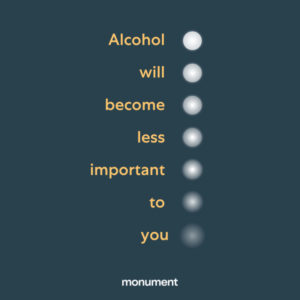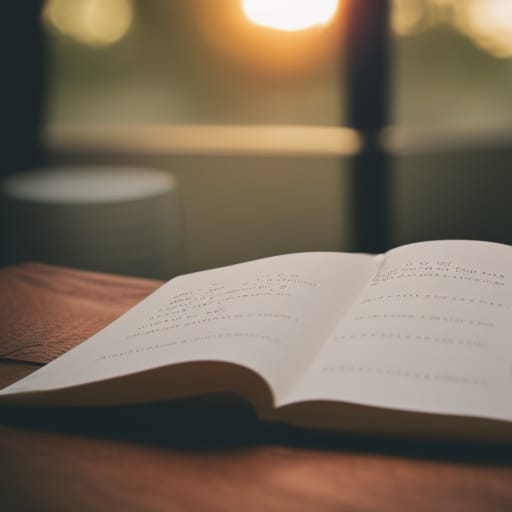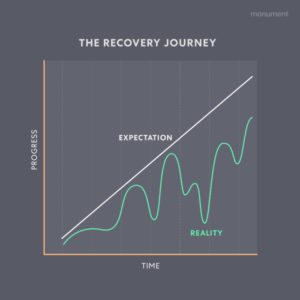People decide to explore life without alcohol for a whole variety of reasons. Some people are looking to improve their wellbeing through better sleep, reduced anxiety, and lower health risks. Others want to experience lifestyle benefits such as improved relationships, more free time, and increased financial savings. Spending time considering how drinking less can give you more is an act of self-care in itself. Whatever your reason, exploring sobriety can lead to countless benefits, many of which can start developing within just three weeks of eliminating your alcohol intake.
Let’s break down these three weeks piece by piece. Keep in mind that while we’ll review common patterns, everybody’s experience is ultimately unique. For personalized guidance and healthcare, please reach out to your healthcare provider.
What to Do Before You Stop Drinking
I often tell my patients to set a “quit date” before they start their journey. This allows you time to mentally prepare and seek support for when challenges arise. It’s important to note that this is often a non-linear journey, and you can always continue forward despite any setbacks. Setbacks don’t erase your progress or change the date in which you decided to start improving your health.
Make a Record of Your Alcohol-related Expenses
It can be motivating to take stock of how much you normally spend on alcohol and alcohol-related supplies, such as going out to bars, cab rides, mixers, etc. Understanding how much you typically spend on drinking can help you realize just how much you will start to save by abstaining.
Remove Alcohol From Your Environment
One of the best things you can do to set yourself up for success is to limit the potential triggers in your space. That means removing all alcoholic drinks, specialty glasses, alcohol-related apparel, snacks you typically eat when drinking alcohol, and any hidden stashes. If you can, enlist the help of a supportive friend. You can ask them to take any liquor or alcohol accessories to store at their own home for the duration of your three weeks without alcohol (and beyond!)
Our brain is excellent at making associations. The strong associations it creates between “booze” and “pleasure” is one of the reasons we experience alcohol cravings and can develop alcohol dependence. Getting rid of any and all items you associate with heavy drinking can make a tremendous difference while changing your alcohol consumption.
Stock Up On Exciting Alcohol-Free Drinks
Visit a store near you with a wide selection of alcohol alternatives, or check out online shops that sell specialty non-alcoholic drinks. The non-alcoholic beverage industry is booming, and there’s a wide range of options, including alcohol-free beer, wine, and spirits. This is another activity you could do with an accountability buddy to get creative together and celebrate this incredible step you’re about to take. You can also explore creative alcohol-free cocktail recipes (check out Monument’s Delish AF drink book!)
If alcohol-free alternatives don’t feel supportive to you, that’s more than okay. You can also explore some exciting new snacks and food options. Shaking up your routine will help you avoid cravings, and you deserve to treat yourself!
Prepare Your Support System and Resources
Experts recommend engaging with as many resources as possible in order to have the greatest chance at success. At Monument, you can meet with a physician, such as myself, to discuss medication to stop drinking or connect with a therapist that’s specialized in helping folks stop drinking. You can also join moderated support groups on a wide variety of topics.
It’s also vital to connect with a physician to ensure that you can stop drinking safely. Quitting alcohol cold turkey can have dangerous, even life-threatening, effects. Your physician can help you make a plan catered to your needs.
It can also be very useful to share your goals with trusted members of your network. Prepare a list of phone numbers of supportive friends and family members you can have on hand whenever you need some extra support.
Lastly, reflect on your coping mechanisms and brainstorm what new self-care practices you can introduce, such as yoga, baths, daily walks, and meditation. I also recommend to patients that they start a journal when they stop drinking to document their journey and have a space to process their thoughts and feelings.

Benefits of Three Weeks Without Alcohol
For those who experience benefits of three weeks without alcohol, here are some of the most common positive changes:
- More energy
- Better sleep
- More free time
- Weight loss
- Better memory
- Improved skin
- Reduced anxiety and depression
- More money
- Improved sex drive
While everyone’s journey is unique, many people experience a variety of the benefits of sobriety within the first three weeks without alcohol. That’s why ‘dry challenges’ like Sober September or Dry January are a great launching point for many people – abstaining for a few weeks creates room for you to experience life without alcohol, reevaluate your drinking, and re-align your behaviors and routines with your values. It’s also important to note that if you don’t experience benefits in very early sobriety, that’s normal too! You can read more about the alcohol recovery timeline to better understand different stages of healing, and why that looks different for everyone.
What to Do on Your First Day Without Alcohol
Practice Self-care And Seek Support
On your quit date, be sure to give yourself some extra space and care. You may be familiar with the old saying: “nature abhors a vacuum,” meaning we tend to quickly replace one habit with another. When you stop using alcohol as a coping mechanism, it’s common to engage in other unhealthy habits to seek relief. Knowing this may occur can help you be more mindful of your behaviors, and encourage you to develop healthier coping mechanisms to replace alcohol. And you don’t have to do that alone. I recommend to all my patients that they attend one or more therapist-moderated alcohol support groups on their first day without alcohol.
Also, be sure to reach out to your loved ones and receive their positive affirmations. Take that list you prepared and call two to three people. Allow them to encourage you by reminding you of your value, talent, and worth. You are taking an incredible and brave step; you deserve to feel celebrated.
Prepare For Sleep Disturbances
Sleep disturbances are one the most common concerns in the first few days coming off of alcohol. Try not to exercise within 3 hours of bedtime as it can interfere with sleep induction. It’s also helpful to avoid television, tablet, and smartphone usage within 60-90 minutes of lying down since the blue light can suppress the natural melatonin releases of the brain before sleep.
Try incorporating these activities into your alcohol-free nighttime routine:
- Drinking a warm non-caffeinated beverage
- Reading books or magazines
- Doing a logic puzzle
- Winding down with a phone call
I also encourage you to talk to a physician about your sleep concerns and alternative sleep aids. This is a common challenge in early sobriety, and it’s important for your well-being to get quality sleep.
What to Expect in the First Week of Quitting Drinking
The first week without alcohol often includes various challenges such as withdrawal symptoms, intense alcohol cravings, and mood swings. The good news is, by the end of the first week, these symptoms will likely start to lessen in intensity and frequency. The first week of sobriety is also a time to introduce new self-care routines into your daily life, surround yourself with extra support, and celebrate small wins.
Expect Some Discomfort
The first week sober is a period of significant changes for the mind and body. You may experience acute withdrawal symptoms. This can include unpleasant symptoms such as headache, nausea, mood swings, and sweating. Withdrawal side effects are the body’s response to healing from extended heavy alcohol use. With time (and monitoring if necessary), these alcohol withdrawal symptoms will subside, and you will start to experience all of the rewarding health benefits of sobriety or moderation.
Safety warning: It’s important to note that quitting cold turkey can be dangerous and even life-threatening, and proper withdrawal management is critical for your safety. Speaking with a physician can ensure you have a plan to cut back safely and help you manage any alcohol withdrawal symptoms.
If you believe you are experiencing alcohol withdrawal syndrome, please contact your provider immediately and visit https://findtreatment.gov/ to find a location to get supervised detox near you. If this is a medical emergency, call 911
Expect Cravings To Rise And Subside
Additionally, cravings are common in the first week of sobriety. Alcohol releases dopamine (AKA the ‘feel-good hormone’) in the brain. With extended alcohol use, the brain makes strong associations between alcohol and pleasure, which can cause alcohol cravings when not drinking. With time and support, the brain can reset to its natural dopamine balance and start to crave alcohol less. Building a cravings toolkit are great ways to manage alcohol cravings.
You can read a full breakdown of what one week sober entails to learn more about what challenges and benefits you may encounter.
Looking for support to change your drinking? Join our community.
Prepare For a Spectrum Of Emotions
The first week of sobriety often brings about a range of emotions. This is because you are no longer using alcohol to numb your feelings, and your brain chemistry is readjusting to get back its natural balance. While this can be uncomfortable and overwhelming at first, this is a sign of healing. The first week of sobriety is a great time to really listen to your emotions and internalize the fact that all emotions are valid, and can teach us about ourselves.
Bring out your journal and mark down thoughts and memories of this time. What sensations are you having? Which emotions? Are you feeling apprehension, ambivalence, regret? Excitement, insight, hope?
Connecting with a therapist in specialized alcohol therapy can help you process these emotions, work through any setbacks, tolerate negative feelings, and develop healthy coping mechanisms.

Two Weeks Sober: What is it Like?
Week two is often a transition phase in the sobriety journey. You’ve already experienced one week sober, which is a major accomplishment, and you’ve likely gained confidence and coping skills. While you may still be experiencing withdrawal symptoms and alcohol cravings, you’re also likely starting to see some physical and emotional benefits.
Enjoy Improved Metabolism And Digestion
Alcohol products are full of sugar and empty calories. While two weeks is not a long amount of time, my patients often are already starting to eat healthier, see their metabolism improve, and experience some weight loss after quitting alcohol. Their improvement in nutrition also starts to positively affect the body’s kidney function and vision abilities.
Alcohol products can also be very acidic. After two weeks without drinking, the stomach lining can start to normalize, and acid burn can be reduced. This can cause you to regain your appetite and feel fewer symptoms of nausea and indigestion.
In general, you may start to experience physical benefits such as increased energy, reduced anxiety, and improved liver health. You might also notice positive changes in your personal life, such as improved relationships and more free time for hobbies. Keep in mind that everyone’s journey is different, and it may take more time for some individuals to heal from alcohol and experience these benefits.
Support Group: Turning a sobriety challenge into a lifestyle
What Does Three Weeks Without Alcohol Feel Like?
Experience Improved Memory And Blood Flow
Did you just recall that random factoid or long-lost name? Yes, indeed! By the third week without drinking, you’ll have improved memory and cognition! In the absence of alcohol, the nerve endings in the brain’s hippocampus receive more even and consistent blood flow, which results in better short-term and long-term memory.
This improved blood flow leads to other benefits such as lowered blood pressure and reduced risk of stroke and heart disease. Another interesting phenomenon is that these improvements in neurologic function and blood flow affect the most easily accessible muscle in the body… the tongue. So yes, food really does taste better after abstaining from alcohol.
Notice Benefits to the Skin
Three weeks without alcohol may also result in an improved complexion. The delicate capillaries under the skin’s surface are no longer subject to the rages of alcohol-induced dehydration and sweating. Without drinking, the skin can even out to a smoother complexion.
Discover a Boost in Sex-drive
Improvements in bodily functioning can also have a positive effect on sex drive. Without alcohol, your nerve endings, sex hormones, self-esteem, and other qualities of sexual functioning can recover from the impact of alcohol. You can read more about the connection between alcohol and sex drive to learn more about what surprises may be in store.
Alongside the rejuvenation in sex drive, individuals often report a marked increase in their overall emotional intimacy and connection with their partners. The absence of alcohol enhances physical sensitivity and improves emotional availability, fostering deeper and more meaningful interactions in relationships. Engaging in shared activities that promote bonding, such as couple’s exercises, mindfulness practices, or simply dedicating quality time to converse and connect without the distractions of digital devices, can further amplify these benefits.
Enjoy Other Positive Lifestyle Changes
Finally, sleep may start to normalize during week three. Because alcohol can be so disruptive to the natural sleep cycle, it can take a few weeks for sleep to return to its natural rhythms and become deep and restorative once again. In addition to improved sleep patterns, embracing three weeks of sobriety can lead to a noticeable enhancement in hydration levels and nutritional intake. Without alcohol interfering with the body’s absorption processes, you may be more inclined to reach for water and nutrient-rich foods, contributing to overall well-being. Incorporating a balanced diet rich in fruits, vegetables, lean proteins, whole grains, and regular hydration can maximize the physical health benefits experienced during this period. Consider experimenting with new recipes or meal plans focusing on wholesome ingredients to keep your dietary routine exciting and beneficial.
Finally, another practical benefit you’ll find is in your bank account. Do you remember the expenses you logged at the beginning of your journey? Revisit it as a mental exercise and congratulate yourself on the financial benefit you’ve achieved through these three weeks of being alcohol-free! As you observe the financial savings from abstaining from alcohol, consider reallocating some of these funds towards personal development or self-care activities that you may have overlooked. This could include enrolling in workshops or courses to learn a new skill, investing in fitness or wellness programs, or even planning a small getaway to reward yourself for your progress. Such investments celebrate your achievements and contribute to sustained personal growth and happiness

Looking Forward…
You’re eating better. You’re not craving sweets. You’re better hydrated. Food tastes great again. Your improved memory helped your team win trivia night. The budget for a mini-spa day or a golf-outing with friends has been set aside. No alcohol for three weeks presents so many benefits, so why stop now? Many people extend their 21 days into a month or even longer.
What To Do After the First Three Weeks of Sobriety
Once you’ve completed three weeks of sobriety, you’ll likely have a lot of new insight into your relationship with alcohol, and how it’s impacted your health and wellness. It can be especially helpful to spend some time reflecting on your sobriety experience. You may want to ask yourself:
- How do I feel, physically and emotionally, after taking space from alcohol?
- How do I want my relationship with alcohol to change moving forward?
- What were some of the tools I used to support my goal throughout these three weeks?
As you spend time reflecting on your journey, your next steps will become more clear. For some, that may mean continuing to benefit from an alcohol-free lifestyle. For others, it could mean exploring moderation while implementing new boundaries and tools such as mindful drinking. It’s important to remember that your goal can change over time, too. Whatever your next step, continuing to build a healthier relationship with alcohol is something to be incredibly proud of.
Reflecting on the past three weeks, it’s also beneficial to identify any challenges you faced and how you overcame them. This insight can be instrumental in preparing for future obstacles and ensuring the sustainability of your sobriety or moderation goals. Consider establishing a support network that includes not just friends and family but also professionals and peers from sobriety groups who can offer guidance and support as you navigate your journey ahead. Remember, each step forward, no matter how small, is a victory in building a healthier relationship with alcohol
How Long Does Alcohol Recovery Last?
Healing from alcohol use disorder and unhealthy drinking is often a nonlinear journey, but it does get easier, and is ultimately incredibly rewarding. When it comes to alcohol treatment and recovery, experts often recommend engaging in a recovery toolkit (like therapy and medication) for at least one year. This gives you time to practice sobriety through a full year’s worth of seasons, holidays, events, and challenges, and gives your body and brain adequate time to heal. It can also take many months to unlearn old habits and form new ones, especially after long-term alcohol use.
Sobriety and recovery is a lifelong journey in that you get to choose sobriety every day. And if you experience a setback, which is part of the human experience, you can keep moving forward on your path.
No matter what your goals are for changing your relationship with alcohol, you don’t have to go it alone. Explore treatment at Monument today. We’re here for you every step of the way!